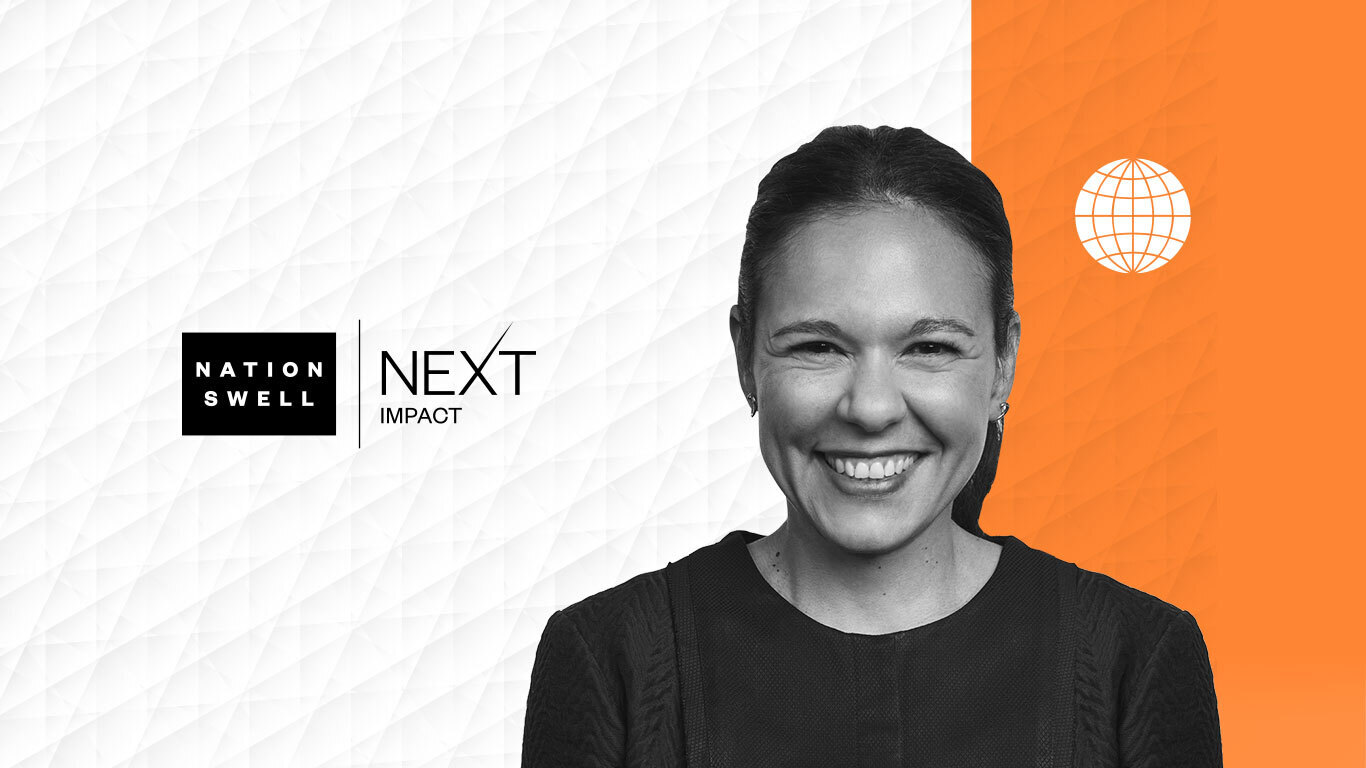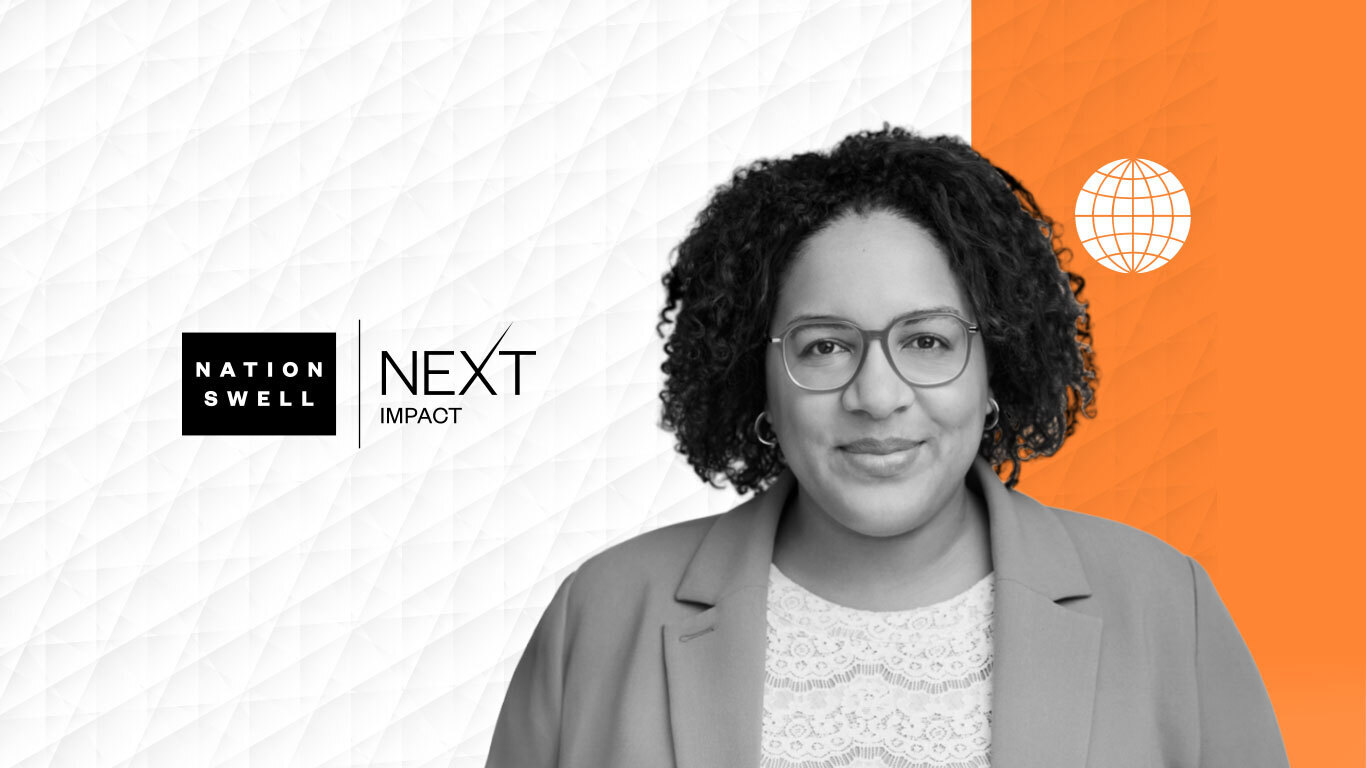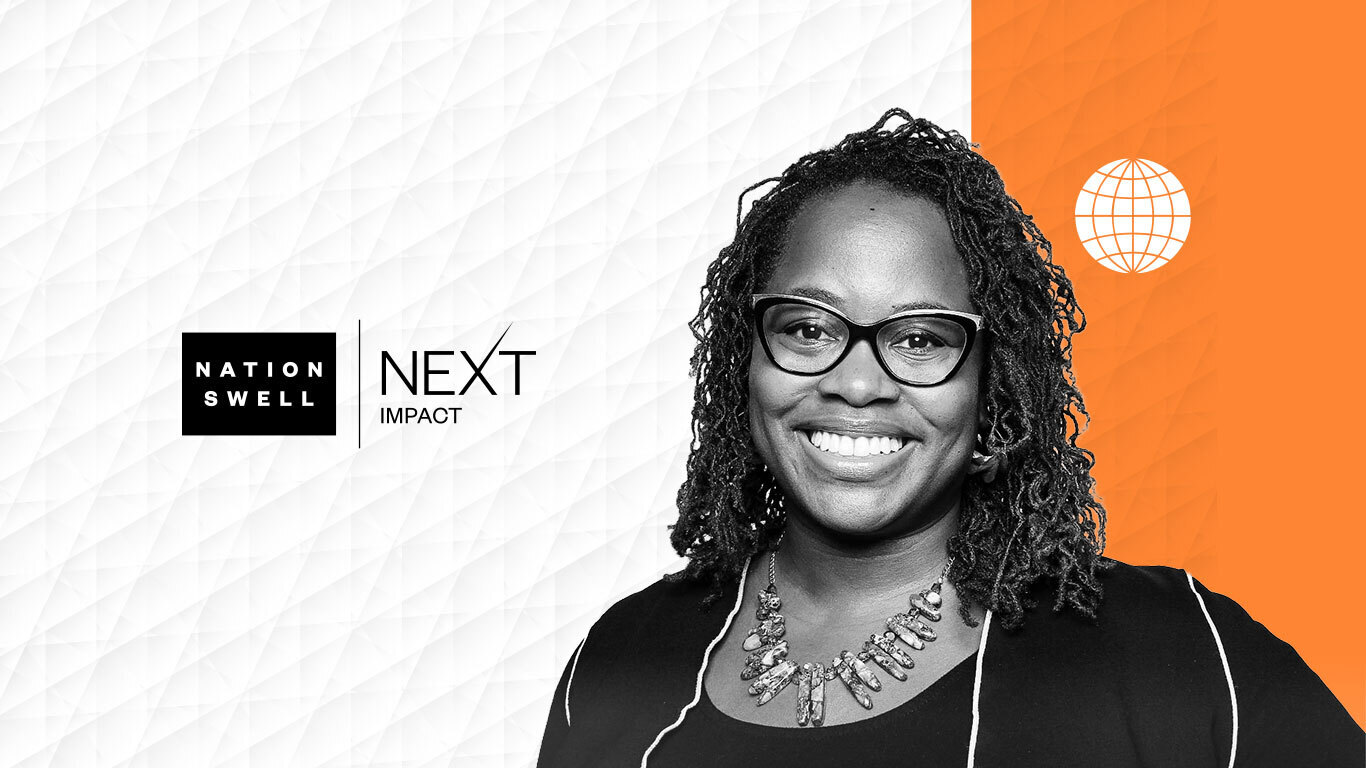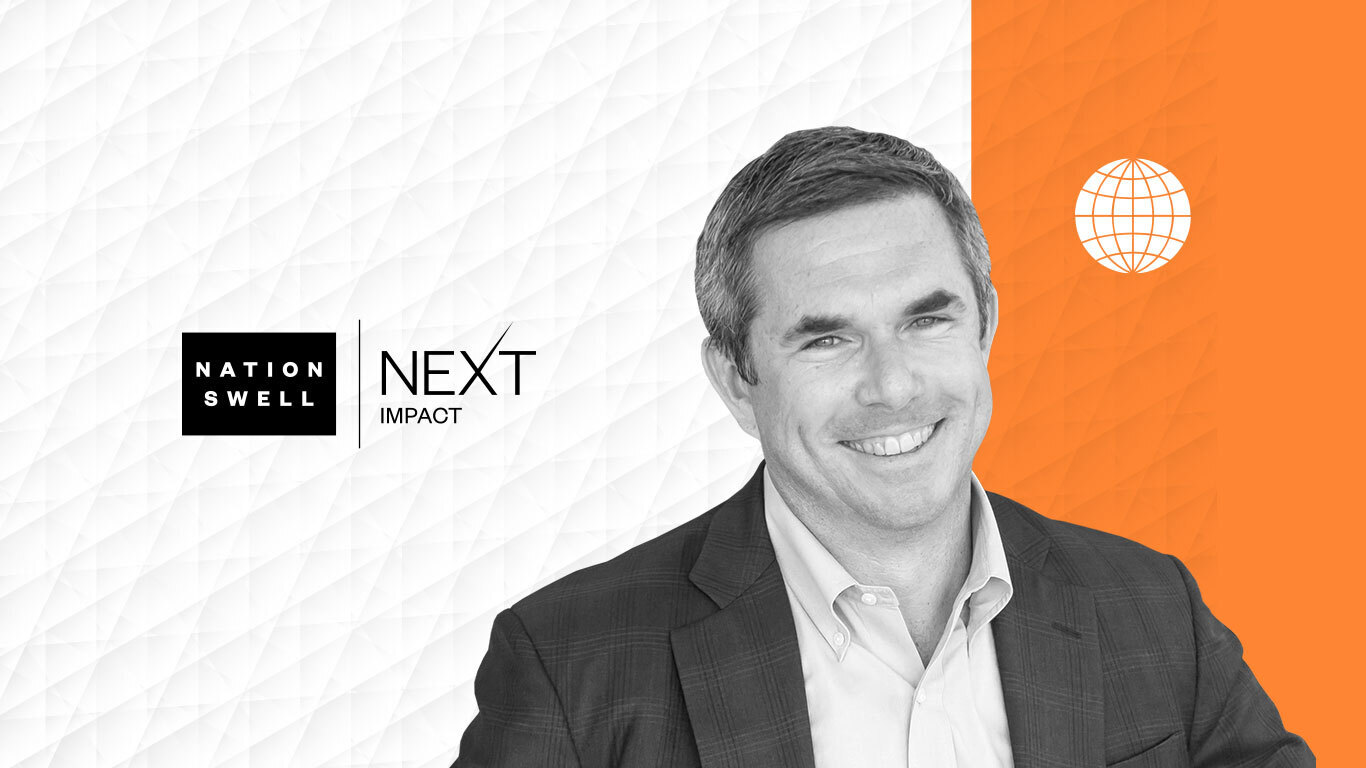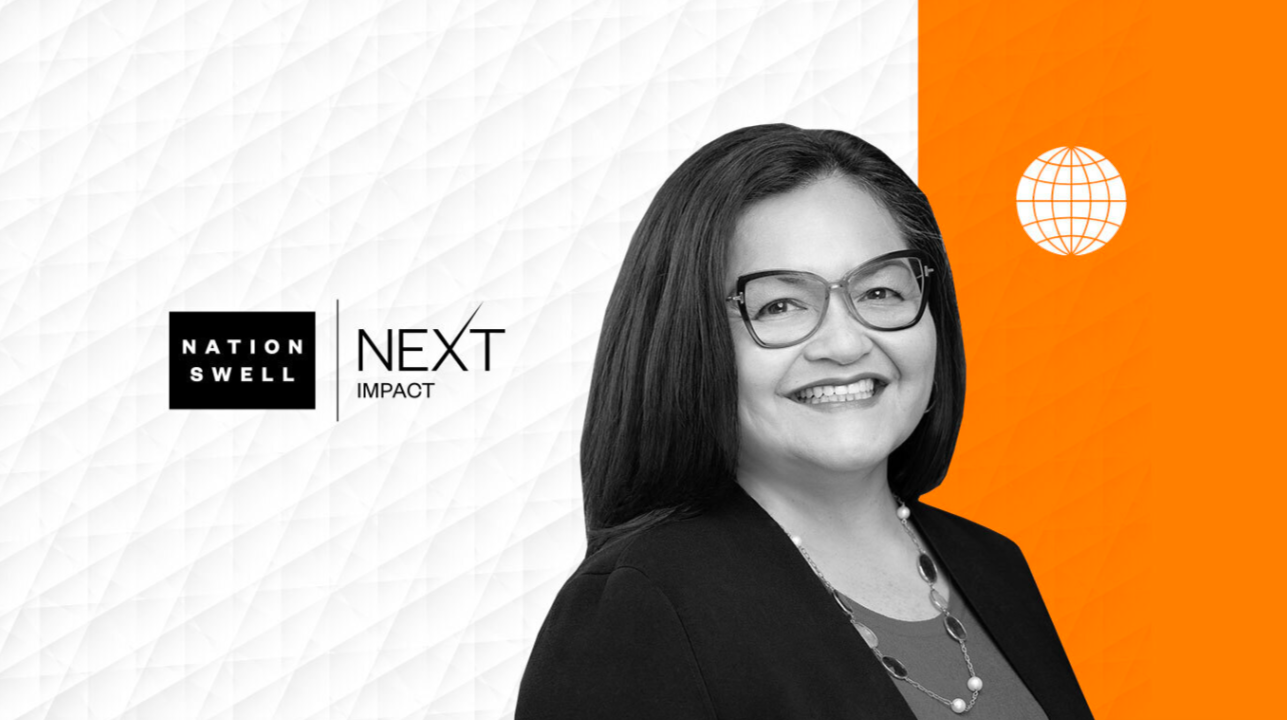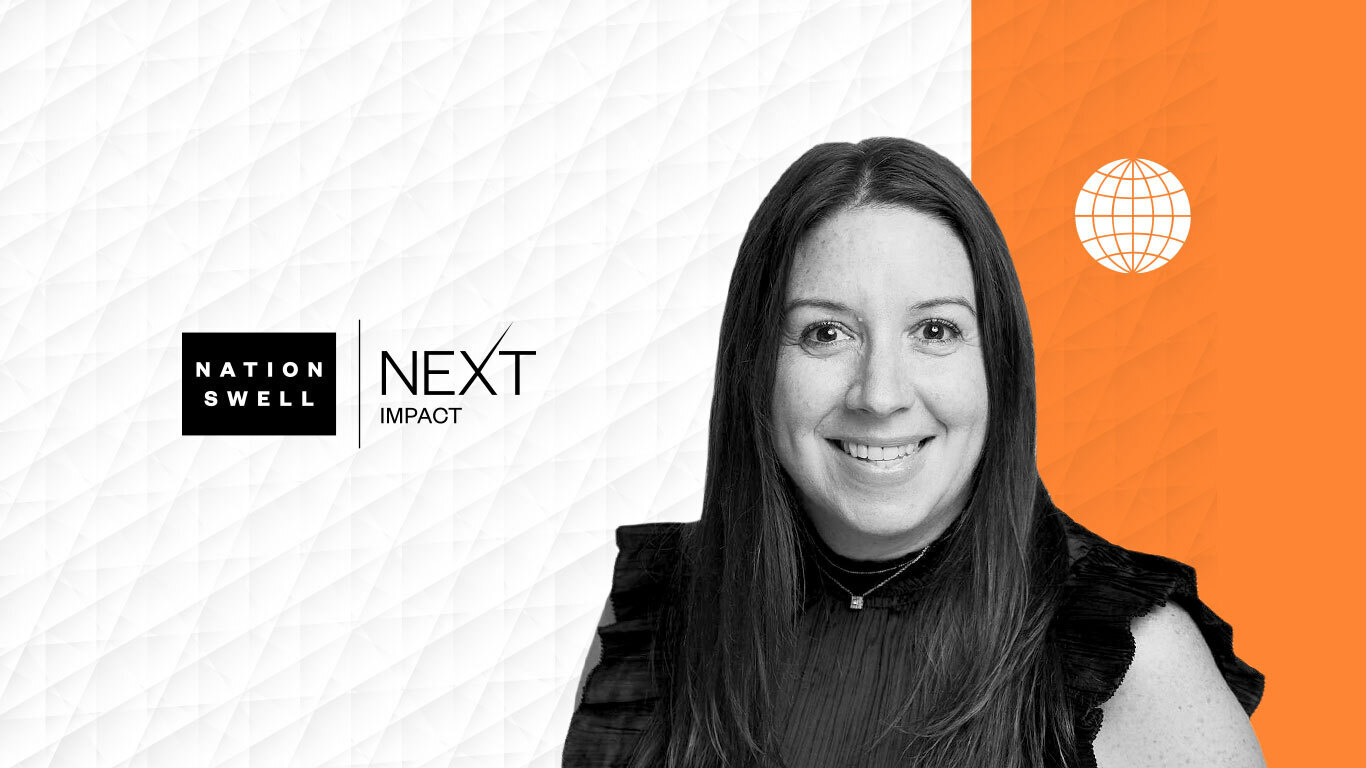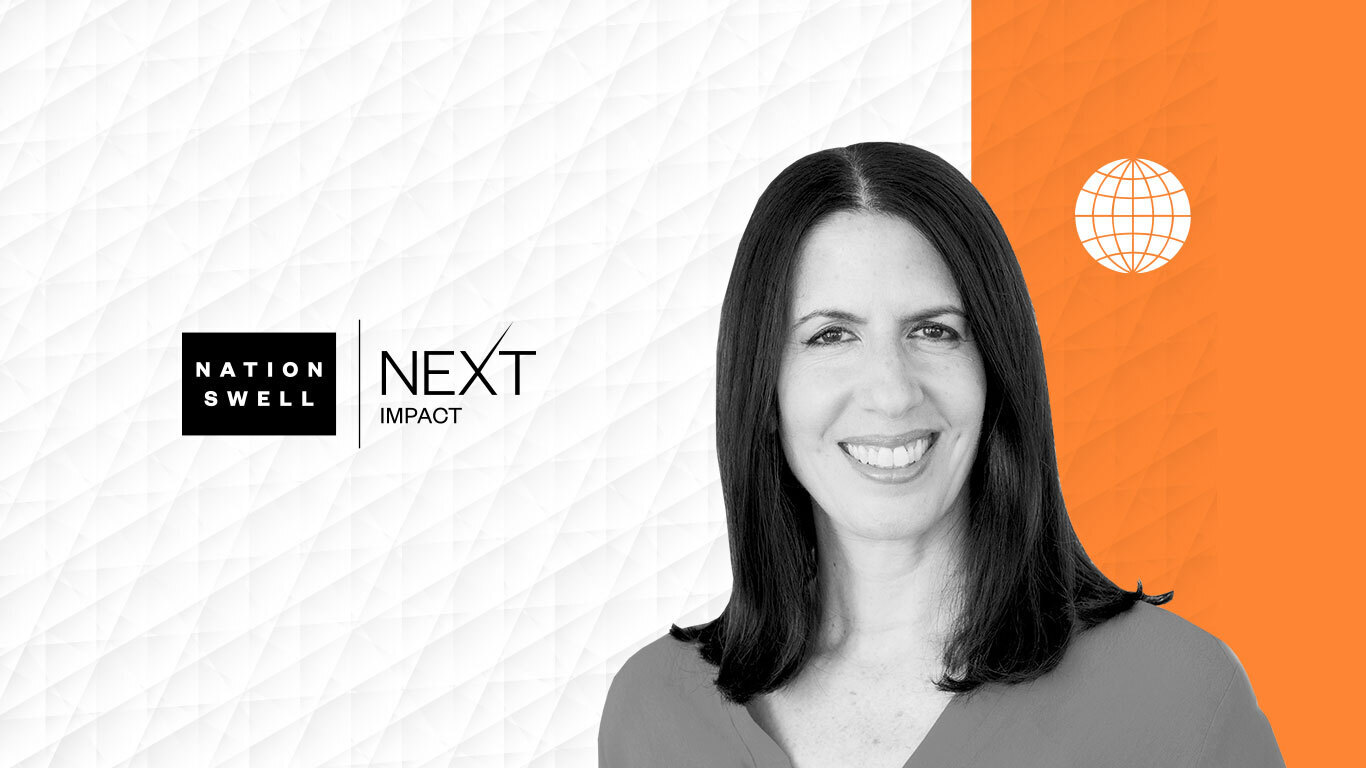At a moment of inequality and division, who is advancing the vanguard of economic and social progress to bolster under-served communities? Whose work is fostering the inclusive growth that ensures every individual thrives? Who will set the ambitious standards that mobilize whole industries, challenging their peers to reach new altitudes of social impact?
In 2025, Impact Next — an editorial flagship series from NationSwell — will spotlight the standard-bearing corporate social responsibility and impact leaders, entrepreneurs, experts, and philanthropists whose catalytic work has the potential to shape the landscape of progress amid urgent need for social and economic action.
For this installment, NationSwell interviewed Vanessa Garcia-Brito, Chief Impact Officer, Nike.
Greg Behrman, founder and CEO, NationSwell: What brought you to this moment? What was your leadership journey like?
Vanessa Garcia-Brito, Chief Impact Officer, Nike: I come from pretty humble beginnings — my mom always had three jobs at a minimum, and my grandmother did a good chunk of raising me in the early years of my life with such unconditional love. Growing up, there was a big theme around agency and choice and optimism. No matter how difficult life was, I was raised to believe we could do something about it. I initially thought that I would put that into practice as a human rights lawyer, and although I did go to law school, eventually through saying yes to a series of opportunities I ended up at Nike. Instead of holding tightly to any one job, I’ve always held tightly to the idea of combining impact with forward movement in a more literal sense. Nike represents the convergence of those values — it’s a place that values sport and movement, a place where my energy and passion for driving impact can really flourish.
Behrman, NationSwell: What is your North Star of your leadership? What are some of the practices and approaches or styles that you’ve found to be really helpful for you, for your team, for others?
Garcia-Brito, Nike: I’m in love with humanity, and because of that, I really believe in leading from a place of love and being upfront and with that as a leadership style.
I believe everyone deserves the chance to realize their greatness, and earlier in my career as a younger woman in leadership, that’s a unique choice to make. Ultimately, you have to decide if you’re all in. For me, it wasn’t even a question — I just led from a place of vulnerability, curiosity, and genuine interest in people and their impact. I’m not territorial, sometimes to a fault; even at Nike, everyone is invited into impact. I view my role as bringing people in and cultivating spaces for connection, helping people move forward together. This aligns perfectly with Nike’s focus on human potential and possibility, and it reflects how we see the power of sport to move the world forward.
Behrman, NationSwell: How has your leadership evolved in the course of your role or your time at Nike — is there a powerful moment that informs how you lead today?
Garcia-Brito, Nike: Working at Nike has really taught me to lead with who I am, and I’d like to think that, in turn, has created space for more people to lead authentically as well. I am very intentional about being a safe space for others, which encourages richer conversations and greater opportunities for people to lower their barriers. Leading this way means you can’t help but see the potential in others. I tend to see obstacles as opportunities — if there’s a tree in the way, I just look for a way around or over it. My experience running ultramarathons shapes this mindset: once committed, you keep moving forward, no matter what challenges arise. This approach has been rewarded in the sense that it’s created venues for different types of conversations — it lets people know exactly who I am.
Behrman, NationSwell: We find ourselves in an interesting moment in the impact space, with new opportunities, some pressures, some currents moving in different directions. How are you making sense of this moment?
Garcia-Brito, Nike: What really helps us navigate is knowing at our core that human potential and movement are at the heart of Nike. Through that lens, it’s exciting to see the definition of sport evolving, becoming more expansive and inclusive. Now, anyone can see themselves as an athlete, whether they’re commuting to work or competing professionally. Life is sport, and this broader perspective invites more people in, helping them rethink what’s possible and feel part of a larger community.
Moments like the Paralympics really stay with me — the power, beauty, and community support are incredible. The athleticism is inspiring, and those experiences remind me how important it is to find connection and empathy through sport. Even if I could never do what Paralympians do, I can share in their experience. I think seeking out those moments of shared humanity is how we move forward together.
Behrman, NationSwell: Is there a sport that kind of embodies the way in which you see the social impact world right now?
Garcia-Brito, Nike: For me, running and yoga are deeply connected- they both embody the mind, body, and spirit, and how we exist together in a world full of polarities. We’re more global than ever, yet people often feel isolated; we have private moments, but we’re always surrounded by others. Both running and yoga remind me that there’s no finish line, just the next step, always at your own pace. No one can do the running or yoga for you, but you can still share the experience.
The New York Marathon is a perfect example: everyone runs their own race, yet it’s a massive, collective event. I love those moments — cheering for strangers, being cheered on, feeling connected even when you’re not sure you’re still moving. That sense of accomplishment is powerful, and the same is true in yoga, where it’s just you, your breath, and your flow. The practice allows you to connect with yourself and that in turn strengthens our connection with others.
Behrman, NationSwell: We’d love to invite you to share a little bit more about the amazing impact work that you and your colleagues are leading. Are there any programs, partnerships, or strategies you’d particularly like to lift up?
Garcia-Brito, Nike: Our focus is creating the future of youth sport, truly uplifting work. Youth are not just our future leaders and next generation of athletes, they are already demonstrating their leadership and shaping how we play, move and pursue sport. Built on 35 years of research and pilots, we’ve learned that leading with girls is the key to lifting everyone up. While both boys and girls are dropping out of sport at high rates, girls tend to start later, drop out sooner, and are harder to bring back — about 85% of girls worldwide aren’t getting enough movement. We also focus on coaches and coaching because we know how important the relationship between a coach and an athlete can be. Coaches play a crucial role as caring adults who provide safe spaces and guidance, especially during pivotal moments in girls’ lives. For example, body confidence is a leading reason girls leave sport, and coaches are vital in addressing this.
Over the past year, we’ve ignited a coaching revolution through global summits — from our World Headquarters in Beaverton, Oregon, to Paris, Los Angeles, and Tokyo — bringing together experts, partners, researchers, and youth to accelerate better, more inclusive approaches. Despite cultural nuances, the barriers youth face in sport are strikingly consistent worldwide, with body confidence a common challenge for girls. Body Confident Sport, our research with partners like Dove, and world-renowned experts the Centre for Appearance Research and the Tucker Center for Research on Girls & Women in Sport, helps coaches understand these issues and create welcoming environments to retain girls in sport.
We also leverage Nike’s broader community, including Nike Community Ambassadors — Nike store employees who serve as coaches in their communities. They embody the spirit of lifting up their neighborhoods. We partner closely with elite athletes in their own community work, such as Play Academy with Naomi Osaka and also via innovative partnerships with other leading brands like our work with Lego emphasizing creativity, movement, and mental health, aiming to build lifelong love for activity. Ultimately, active kids are healthier, happier, and more successful in life. Giving kids an opportunity to play and enjoy sport can be so meaningful; it’s about hope, dreams, and creating a foundation to thrive.
Behrman, NationSwell: What is your call to action for other social impact leaders — what do you think other people need to hear right now?
Garcia-Brito, Nike: At Nike, we believe there’s a coach in everyone — even if you’re just coaching yourself, which is actually a great place to start. Whether you’re at work, at home, or in your community, you don’t have to wait to make a difference. Simply seeing yourself as a coach can transform your connections. There are plenty of free resources to help you start this journey, and often, it’s an easy way to change lives without even realizing it.
My call to action is to tap into that inner coach, starting with yourself and extending it to others, especially young people. In our impact space, it’s vital to create a vision and journey of hope — just as essential as food and shelter. Hope and dreams truly sustain people; when paired with opportunity and community – it is powerful. We need to connect the dots for others, showing how today’s choices lead to real progress and a better future.
NationSwell: What are three resources that have inspired who inspired you as a leader? It could be a book, it could be a movie, it could be a quote, a song, anything.
Garcia-Brito, Nike: There’s a cartoonist called Quino who created a character named Mafalda in the 1960s, and there is a wonderful edition of these comic strips “Todo Mafalda” with a preface by Gabriel Garcia Marquez that I keep near me. Mafalda is a wise and very funny six-year old who is not shy about reflecting some of the absurdities of adulthood. She is a champion for inclusion, joy and world peace – and she is very funny. I’m inspired by the beauty of being able to see the world through the eyes of a six-year-old girl in this space, and how it reminds us that we know everything that we need to know when we’re young.
The other book I’d recommend is called 4,000 Weeks: Time Management for Mortals, by Oliver Burkeman. I live my life with urgency, so I’m kind of impatient when I think about creating change, but this book puts time in perspective — we have only so many weeks. It’s helped me make my minutes feel longer and my life more present, sharpening my priorities.
Peter Block’s book The Answer to How Is Yes influenced me early on. I’ve learned to say yes and drop the ‘how’ that stalls progress. When faced with challenges, I ask not ‘how,’ but ‘do we want to do it?’ If yes, then the ‘how’ will follow.
As for inspiration, it comes from the people we work with daily around the world. Despite the narratives of global division we hear, I see the opposite — countless selfless individuals dedicating their time to help their communities. This work so often happens outside typical hours, fueled by care and skill. I’m grateful for them and believe there are far more people uniting us than dividing us.

